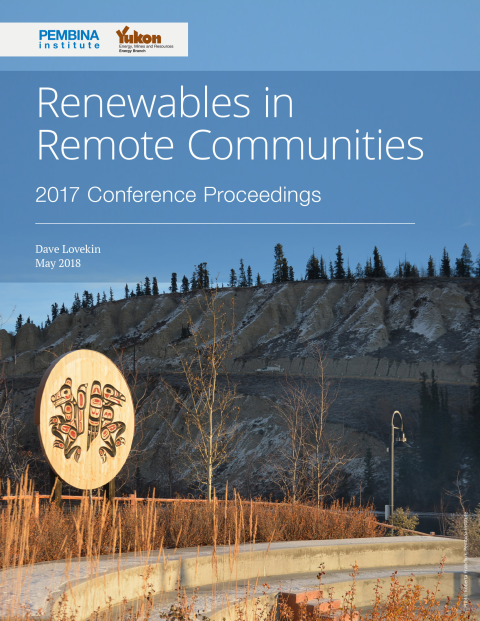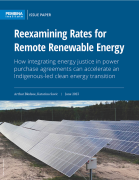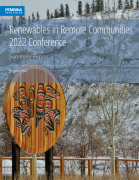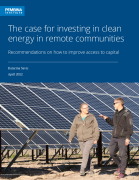The Renewables in Remote Communities 2017 conference saw over 250 people come together in Whitehorse to discuss the human and financial capacity for renewable energy projects in remote communities.
This report discusses how Indigenous leaders, territorial, provincial and federal government representatives, utilities, private business, knowledge experts and the nonprofit sector shared insights into how to better advance diesel reductions in remote communities.
There are many deeper motivations behind this work: reducing the negative environmental impacts related to diesel transportation, storage, combustion and contamination from spills; reducing acute and chronic health impacts associated with diesel fumes and combustion; and loosening the economic liability and grip diesel reliance has on remote Indigenous communities and all Canadians (through federal taxes). A deeper, genuine motivation is about being part of a resurgence of Indigenous culture and linkages to Aboriginal rights and title, self-determination and self-government.







